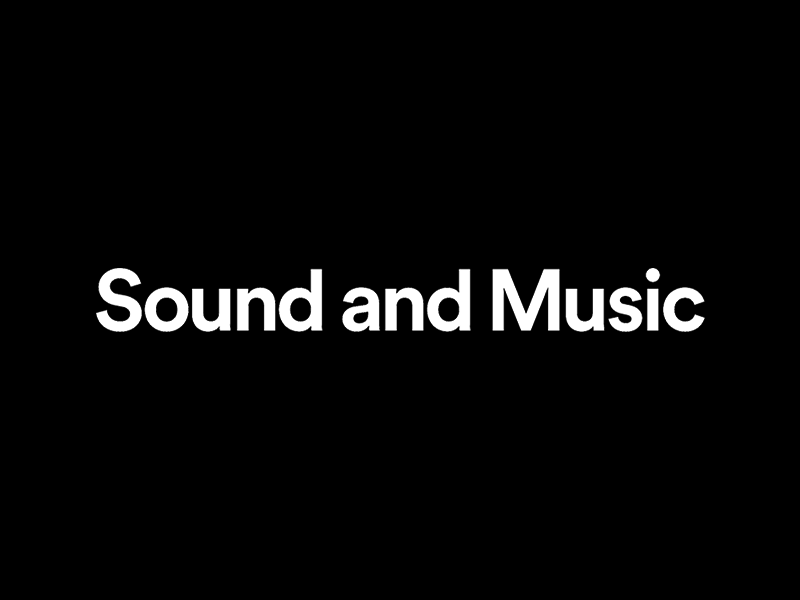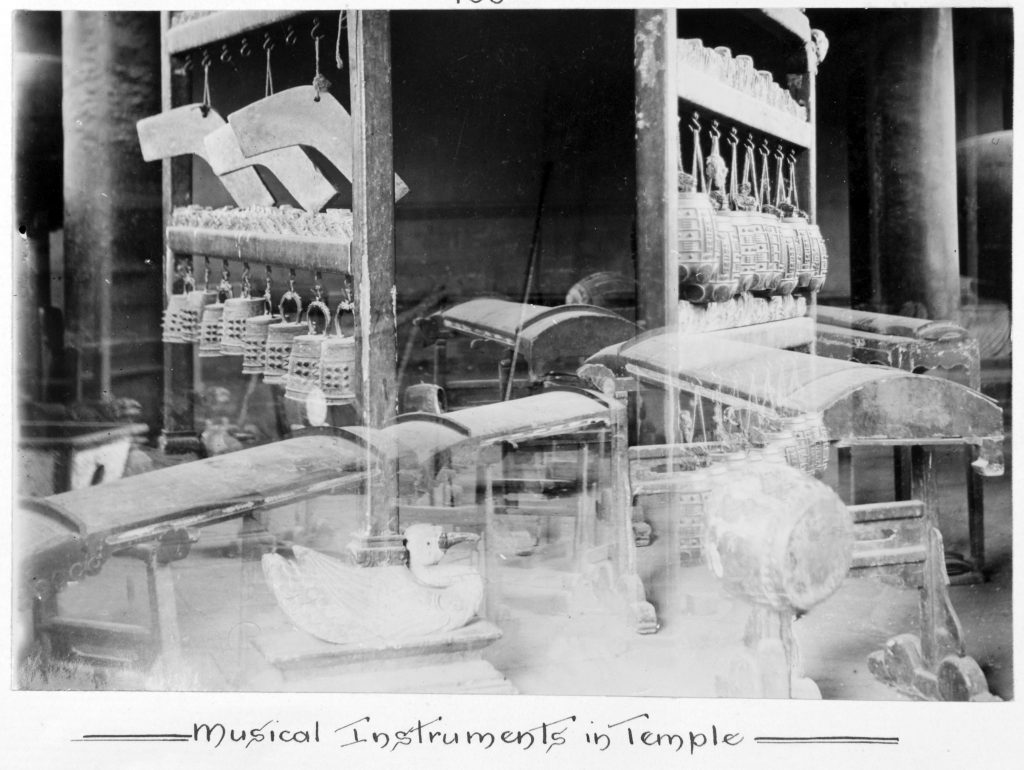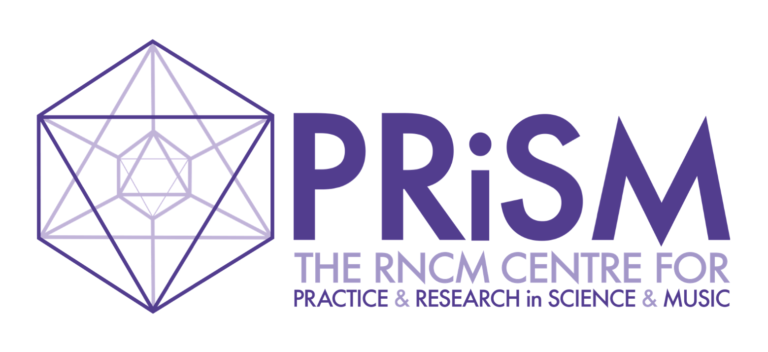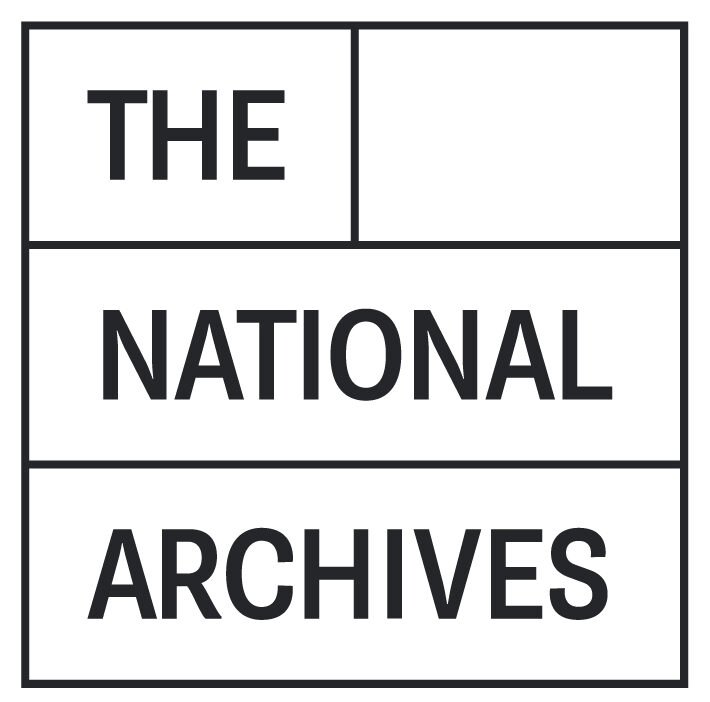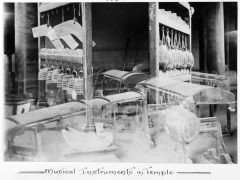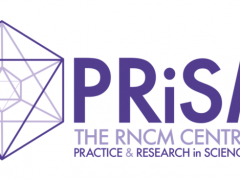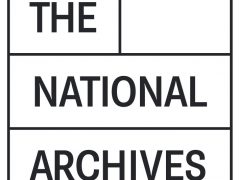Salary Grade: The award pays full maintenance for all students, both home and international students. The National Minimum Doctoral Stipend for 2021/22 is £15,609, plus an allowance of £1000/year and a CDP maintenance payment of £550/year.
Closing date: Applications must be received by midnight on 27 June 2021
Interview date: Online interviews are expected to take place during the week beginning 12 July 2021
An AHRC Collaborative Doctoral Partnership (CDP) in Music Composition: Sounds and Silences in the Archives of Empire
Exploring the records of Empire through the composition of new music and multimedia works; a partnership between PRiSM, the RNCM Centre for Practice & Research in Science & Music, and The National Archives.
The Royal Northern College of Music (RNCM) and The National Archives invite applications for a 45 month (3.75 year) collaborative PhD studentship beginning in October 2021, fully funded by the Arts and Humanities Research Council (AHRC) under the Collaborative Doctoral Partnership Scheme.
The studentship can be undertaken either full or part-time, and is open to both UK and international applicants.
The award pays tuition fees up to the value of the UK Research and Innovation (UKRI) full-time home rate for PhD degrees. International fees will be capped at home rates for this studentship and therefore fully covered by the award. The UKRI Indicative Fee Level for 2021/22 is £4,500.
The award pays full maintenance for all students, both home and international students. The National Minimum Doctoral Stipend for 2021/22 is £15,609, plus an allowance of £1000/year and a CDP maintenance payment of £550/year. Further details can be found on the UKRI website.
The studentship has the possibility of being extended for an additional 3 months to provide professional development opportunities, or up to 3 months of funding may be used to pay for the costs the student might incur in taking up professional development opportunities.
Background
Sounds and Silences will embed a composer at The National Archives to explore the records of Empire through the creation and public dissemination of a portfolio of new music and multimedia works, aiming to recontextualise collections. Working with Colonial Office (CO) material, you will reinterpret and challenge the official records of the British Empire in three principal ways:
i) Using Machine Learning to uncover core themes and biases,
ii) Sonification of data and generation of new texts to informoriginal musical compositions,
iii) Engagement within communities impacted by this research, whose voices are often absent in the official record.
In doing so, your work will explore and develop the uses of Machine Learning (ML) and Artificial Intelligence (AI) to analyse and creatively explore archival text, in order to understand how new technologies can inform new musical works and address the archival legacies of Empire.
Research Questions
The successful candidate will be able to mould the project to their own research interests, but indicative research questions are:
- How can the exploration of collections held by The National Archives offer opportunities for a practice-based artistic researcher to uncover the hidden, and lost, narratives of Colonial Subjects?
- How can the experiences and voices of the descendants of those directly affected by Colonial rule be integrated within the resulting portfolio of works?
- What creative opportunities do advances in ML/AI offer for the statistical analysis, language processing and text synthesis of existing records?
Research Aims
This unprecedented collaboration between PRiSM/RNCM and The National Archives is an original and timely project which directly addresses current technological and cultural/political moments. There has been an explosion of activity in the fields of ML and AI, a development which will significantly impact art-making, and our broader culture, in hitherto unforeseen ways. At the same time, there is an increasing cultural and political recognition of the need to address the legacies of Empire. Sounds and Silences aims to challenge assumptions about Empire and the way its official history has been recorded.
This calls for artistic, public facing, participatory projects that acknowledge, and collectively process, problematic histories. Sounds and Silences answers this need. It is inherently inclusive, aiming not only to uncover and highlight new and hidden narratives within The National Archives’ collections, but to actively empower and unsilence the voices that guide those narratives. The student will engage directly with local communities and cultural centres, via workshops, interviews and facilitated knowledge exchanges in order to embed the histories and experiences of members of the public directly within the research.
Submission Format
The applicant is invited to submit:
- A portfolio of three examples of their own recent compositions in any format.
- A 1,500 word supporting statement or equivalent* that provides a brief commentary of their portfolio and a response to the aims and themes of this project.
- A completed application form, which can be downloaded from the links in the Downloads section.
- A covering letter of no more than 500 words.*
*Alternative formats are welcome for the research proposal and covering letter, including audio and video, in any combination, with or without a written component.
Please send your application to the PRiSM Centre Manager, Sam Duffy via email at sam.duffy@rncm.ac.uk prior to the deadline listed below.
Applicant
Applicants for studentships will usually have a first-class or upper-second undergraduate degree, and either have achieved a merit or distinction level in a Masters degree, or achieved a significant track-record as a composer, for example, through commissions, performances and publications.
We encourage applications from applicants who may have acquired the required skills and experience through an alternative route. If an applicant doesn’t have the above formal qualifications, their portfolio should be accompanied by commentary and explanations sufficient to demonstrate facility to complete the academic elements of a PhD.
We want to encourage the widest range of potential students to study for a CDP studentship and are committed to welcoming students from different backgrounds to apply. We particularly welcome applications from Black, Asian and minority ethnic backgrounds as they are currently underrepresented at this level in this area
We welcome applications from Disabled candidates and are pleased to accept applications in a format that is accessible to you.
Eligibility
This studentship is open to both Home and International applicants. To be classed as a Home student, candidates must meet the following criteria:
- Be a UK National (meeting residency requirements), or
- Have settled status, or
- Have pre-settled status (meeting residency requirements), or
- Have indefinite leave to remain or enter
Further guidance can be found on the UKRI website.
Applicants should ideally have or expect to receive a relevant Masters-level qualification, or be able to demonstrate equivalent professional experience (i.e. a sustained track record of independent creative practice).
Applicants must be able to demonstrate an interest in the archives sector and potential and enthusiasm for developing skills more widely in related areas.
As a collaborative award, students will be expected to spend time at both the RNCM and The National Archives.
All applicants must meet the UKRI terms and conditions for funding.
Access Support
The RNCM welcomes Disabled students, and students with long term conditions including those with specific learning difficulties and mental health problems. Ways in which we can support you include:
- One-to-one academic and study skills tutorials
- Guidance on documenting your disability
- Provision of a suitable Personal Learning Plan (PLP)
- Specific learning difficulty (e.g. dyslexia) screening on request
- Advice on applying for Disabled Students’ Allowances (DSAs)
- Specialist mental health support
- Specialist physical support
If you would like to discuss any of your needs, please email Jane Gray, Assistant Head of Registry (Wellbeing), at jane.gray@rncm.ac.uk or call 0161 907 5219.
Associations
The studentship will be associated with:
- PRiSM, the RNCM Centre for Practice & Research in Science & Music
- The National Archives, the official archive of the UK government holding over 11 million records from the Domesday Book to files of modern government departments and an Independent Research Organisations (IRO).
- CDP Cohort – the successful applicant will become part of the wider cohort of CDP funded students across the UK, with access to CDP Cohort Development events.
Supervision Team
The studentship will be supervised by:
- Dr Sam Salem (PRiSM Lecturer in Composition, RNCM)
- Christopher Day (Head of Modern Domestic Records, The National Archives)
- Professor Emily Howard (Professor of Composition and Director of PRiSM, RNCM)
- Dr Juliette Desplat (Head of Modern Collections, The National Archives)
Timeline
Applications must be received by midnight on 27 June 2021.
Online interviews are expected to take place during the week beginning 12 July 2021.
Further Information
Postgraduate research students benefit from the vibrant specialised musical environment at RNCM and participate in the broader research community within the North West Consortium Doctoral Training Partnership. Research degrees at RNCM are validated and awarded by Manchester Metropolitan University, so students can draw on training and expertise from both institutions.
Further information about PhD research at RNCM is available here. General guidelines for Research Student applicants are available here. However, please note that these guidelines are primarily intended for the RNCM’s general call for PhD studentships, and the application process for this specific award is as described in this document.
Please contact the PRiSM Centre Manager, Sam Duffy sam.duffy@rncm.ac.uk with any questions in the first instance, or for assistance accessing the application materials accompanying this advert. If you would like to arrange an informal discussion with Dr Sam Salem, contact Sam Duffy so that this can be arranged.

